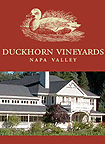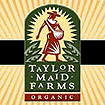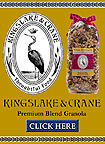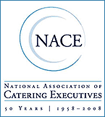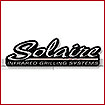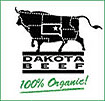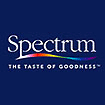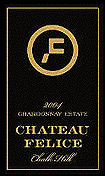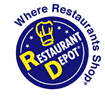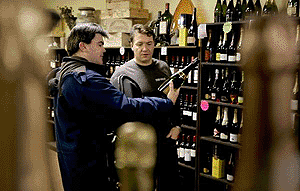
Wine
lovers trade down
Grape
proves to be not-quite-recession-proof passion
By
Kevin McCallum
THE PRESS DEMOCRAT
Wine
may be an affordable luxury, but 2008 taught Sonoma County wineries
that their products are not as recession-proof as they hoped.
High
gas prices in the summer kept visitors away from tasting rooms.
High-end
wine sales slumped as fine dining dropped off a cliff.
And
conservative shoppers traded down from top-shelf vintages in
search of bargain brands.
"This
market is pretty wild," said veteran wine analyst Jon Fredrikson
of Woodside-based Gomberg, Fredrikson & Associates.
Even
though the signs of a recession have been around for more than
a year, it didn't hit home for many wineries until October and
November when the sales figures plunged, Fredrikson said.
Distributors
and restaurants, in an effort to save money and to brace for
a poor holiday season, purchased less wine, blindsiding many
wineries.
Total
wine sales still are growing, but the growth has clearly shifted
to wines under $10, a reversal of the long-term trend of people
buying better wine, Fredrikson said.
"People are trading down. Everybody has their guard up,"
he said.
Wineries
and wine retailers responded to the economic challenges in many
ways in 2008, searching for strategies to weather the storm
and position themselves for recovery. But most agree that 2009
likely will be another tough year.
Belt
tightening
Kendall-Jackson winery founder Jess Jackson has responded to
the tough climate with layoffs, a hiring freeze and closure
of the Lake County winery where he got his start in the business
in 1982.
"I
think Jess is just being fiscally prudent because he knows the
economy is slowing," said Clay Gregory, president of Jackson
Family Wines. "We've got to make some adjustments because
our industry isn't growing as strongly as it has in the past."
Every
division has been required to reduce spending, Gregory said.
Some departments cut travel and entertainment, while others
have trimmed hours for workers in an effort to preserve jobs,
Gregory said.
"We're
trying to be creative about it and not use a chainsaw by any
means," he said.
Spokeswoman Caroline Shaw declined to provide specific figures,
but said the organization had "about a dozen" fewer
employees at the end of 2008 than it did the prior year.
Sales
of the wine group's higher-end wines have softened more than
its high-volume brands such as Kendall-Jackson Vintners Reserve
and La Crema, Gregory said.
Jackson
has gone on a buying spree in recent years, spending tens of
millions of dollars on high-end wineries, including Arrowood
in Glen Ellen, Byron in Santa Maria, Murphy-Goode in the Alexander
Valley and Chateau Potelle in Napa. Some wines at Jackson's
Verite winery fetch over $200 a bottle.
While
sales of these wines are sluggish, Jackson is patient, and believes
strongly that demographic and cultural trends justify the company's
focus on higher-end wines, Gregory said.
"The
long-term view is still good," Gregory said. "The
Millennials are still going to be drinking wine, and it's the
second largest generation in history."
Like
Jackson's wine portfolio, the newly formed Ascentia Wine Estates
in Healdsburg has both high-end wines and value brands. Chief
executive Jim DeBonis said his main strategy is to keep costs
down to remain flexible.
"We're
going to be very focused and very frugal and we're not going
to do things that don't have a significant impact," DeBonis
said.
Focusing
on value
As consumers slide down the price scale, wineries and retailers
have been struggling to adjust.
"I
noticed it about a year ago, but about six months ago it started
picking up," said Jason Jenkins, owner of Vine and Barrel:
Fine, Rare and Boutique Wines in downtown Petaluma.
Jenkins
estimates sales of wines over $50 a bottle have declined at
least 30 percent. His best selling wine is now an $8 grenache
from Spain.
"It's
great and it's cheap," he said.
Jenkins
doesn't see the shift to value changing soon, and is remodeling
his shop to build a wall display devoted only to wines under
$10.
Ben
Pearson at Bottle Barn in Santa Rosa said there's "big
time softness at the high end," with sales off by "double
digits, easy." Foot-traffic is up over last year, Pearson
said, while the average sales down about five percent, he said.
"We
feel like we're reasonably well positioned for these type of
conditions," he said.
Wineries
are adjusting by focusing on their less expensive labels. Tiny
Kokomo Winery in Healdsburg would love to sell more of its $50
pinot noir, but winemaker and owner Erik Miller says he's happy
he has two cheaper alternatives -- a cuvee red blend and a zinfandel
-- that sell for $20.
"It's
tough for a winery of our size to come out with wines at those
price points, but now I look at that as a very smart move,"
Miller said.
High
end hanging tough
While some consumers have switched to bargain hunting mode,
there are plenty who remain flush enough to continue drinking
the finest.
Bottle
Barn carries a French burgundy from Domaine de la Romanee Conti
that retails for over $10,000 and it continues to sell, Pearson
said. People who can afford such luxuries aren't likely to let
a little thing like a recession stand in their way, he said.
"The
market for that is the super elite, and they're not going to
be affected, unless they invested with (Bernard) Madoff,"
Pearson said.
The
bigger change is that wines once considered harder-to-find are
being offered in greater volume and to retailers who could not
get their hands on them before, Pearson said.
The
most coveted ones, such as Opus One, Williams Selyem and Rochiol,
are still going to sell quickly. But some newer wines, such
as the latest pinot noir, are longer able to command the prices
they once did.
"Now
we're putting them on the shelves and they're $80 and people
are saying 'I think this really nice $40 one will make me happy,'
" Pearson said.
Looking
to the future
One winery trying adapt to a softening restaurant climate is
Flowers on the Sonoma Coast. Its wines retail for $40 to $60.
Eighty percent of 22,000 cases of pinot noir and chardonnay
is sold in restaurants. The winery views the slow sales as an
opportunity to offer wines to retailers the winery has not done
business with before, said Tom Hinde, the winery president.
"I
think the key to this recession is to use it position yourself
for the next four to five years," he said.
Experience
has shown that slashing prices to drive sales is not a smart
long-term strategy, said Chris Hanna, owner of Hanna winery
and a board member of the Sonoma County Vintners.
That's
what wineries did in the early 90s. It's tough to recover from
such a move because consumers become accustomed to the lower
prices, she said.
"Not panicking, to me, is key," Hanna said.
(You
can reach Staff Writer Kevin McCallum at 521-5207 or kevin.mccallum@pressdemocrat.com.)





